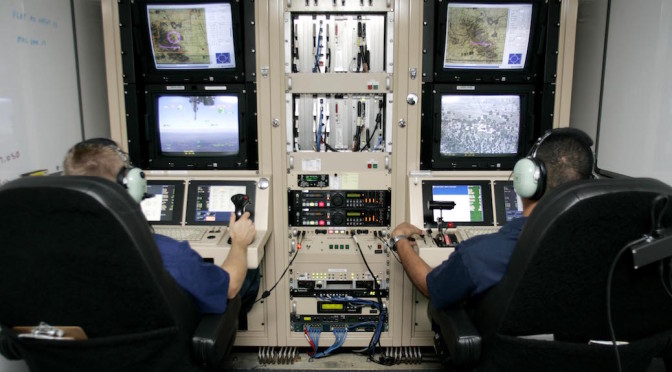In the relatively near future, the United States and other countries are likely to develop varying levels of artificial intelligence (AI) and integrate it into autonomous weapons. There are significant voices, spearheaded by The Campaign to Ban Killer Robots, advocating for a preemptive ban on these weapons. The opponents of lethal autonomous weapon systems (LAWS)… Continue reading Command Responsibility: A Model for Defining Meaningful Human Control
Category: Remote Targeting/Targeted Killing
Dawn of the Intercontinental Sniper: The Drone’s Cascading Contribution to the Modern Battlefield’s Complexity
Stephen L. Schooner and Nathaniel E. Castellano review Richard Whittle’s Predator: The Secret Origins of the Drone Revolution. The authors highlight the cast of quirky characters that drive the narrative element of Whittle’s book while recounting the ethical dilemmas, national security issues, and bureaucratic challenges that attend one of the nation’s most successful weapons development… Continue reading Dawn of the Intercontinental Sniper: The Drone’s Cascading Contribution to the Modern Battlefield’s Complexity
“Friend of Humans”: An Argument for Developing Autonomous Weapons Systems
Toscano reviews the state of autonomous robotic technology on the modern battlefield, in both its current and anticipated instances. He suggests that existing legal frameworks in international humanitarian law and the laws of war are equipped to deal with this novel form of weaponry. Friend of Humans


